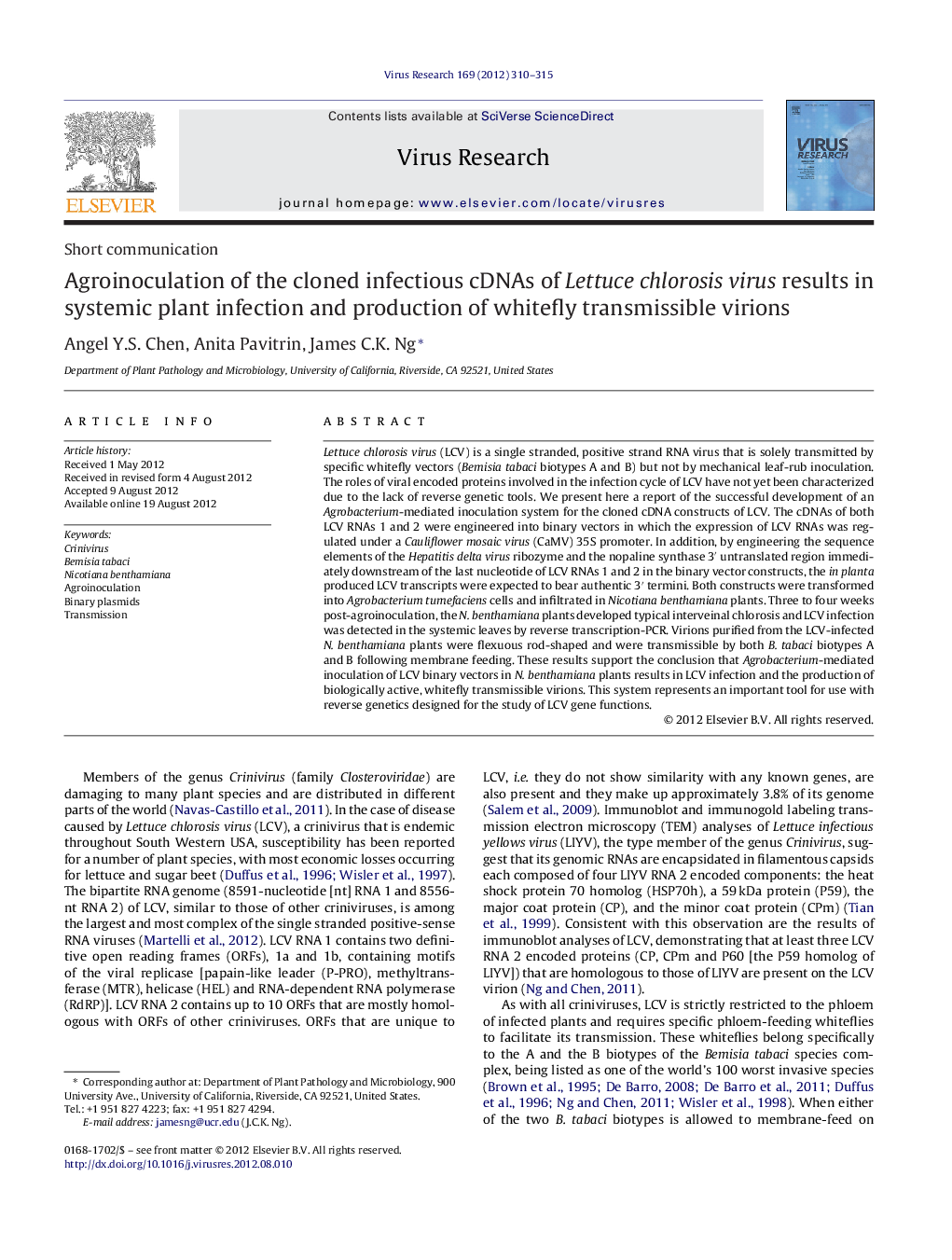| Article ID | Journal | Published Year | Pages | File Type |
|---|---|---|---|---|
| 6143167 | Virus Research | 2012 | 6 Pages |
Abstract
Lettuce chlorosis virus (LCV) is a single stranded, positive strand RNA virus that is solely transmitted by specific whitefly vectors (Bemisia tabaci biotypes A and B) but not by mechanical leaf-rub inoculation. The roles of viral encoded proteins involved in the infection cycle of LCV have not yet been characterized due to the lack of reverse genetic tools. We present here a report of the successful development of an Agrobacterium-mediated inoculation system for the cloned cDNA constructs of LCV. The cDNAs of both LCV RNAs 1 and 2 were engineered into binary vectors in which the expression of LCV RNAs was regulated under a Cauliflower mosaic virus (CaMV) 35S promoter. In addition, by engineering the sequence elements of the Hepatitis delta virus ribozyme and the nopaline synthase 3â² untranslated region immediately downstream of the last nucleotide of LCV RNAs 1 and 2 in the binary vector constructs, the in planta produced LCV transcripts were expected to bear authentic 3â² termini. Both constructs were transformed into Agrobacterium tumefaciens cells and infiltrated in Nicotiana benthamiana plants. Three to four weeks post-agroinoculation, the N. benthamiana plants developed typical interveinal chlorosis and LCV infection was detected in the systemic leaves by reverse transcription-PCR. Virions purified from the LCV-infected N. benthamiana plants were flexuous rod-shaped and were transmissible by both B. tabaci biotypes A and B following membrane feeding. These results support the conclusion that Agrobacterium-mediated inoculation of LCV binary vectors in N. benthamiana plants results in LCV infection and the production of biologically active, whitefly transmissible virions. This system represents an important tool for use with reverse genetics designed for the study of LCV gene functions.
Related Topics
Life Sciences
Immunology and Microbiology
Virology
Authors
Angel Y.S. Chen, Anita Pavitrin, James C.K. Ng,
